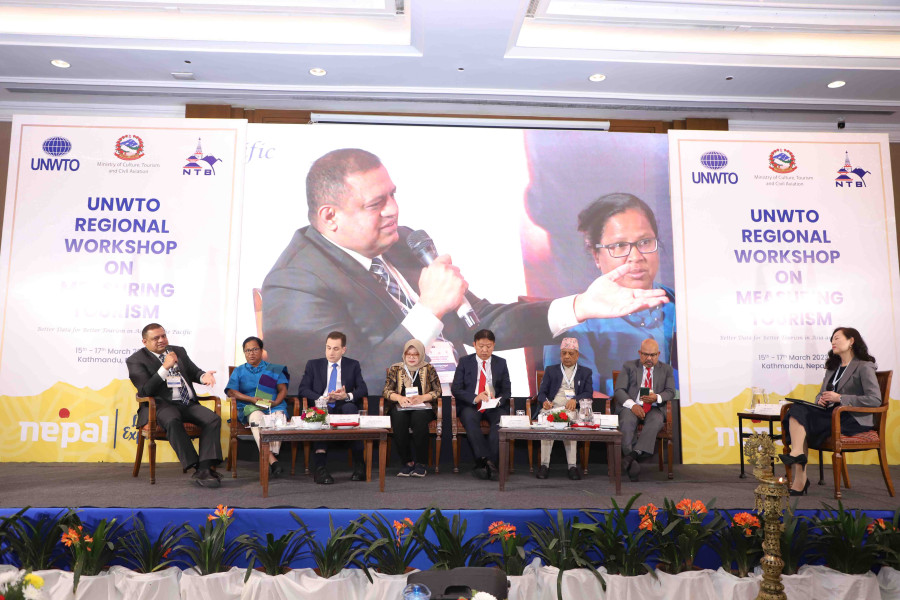Money
Tourism stakeholders stress the need for reliable data
Data unavailability and inconsistencies have affected the formulation of effective tourism policy, they say.
Post Report
Nepal Tourism Board in association with United Nations World Tourism Organisation organised a regional workshop on measuring tourism on Wednesday to discuss the role of reliable tourism data for effective formulation of tourism policy.
Participants said the unavailability of accurate data and inconsistencies in the existing ones have hindered the development of the tourism industry, especially in Asia and the Pacific.
There is a big difference in data provided by different agencies, said Dhananjay Regmi, chief executive officer of the Nepal Tourism Board.
Regmi was addressing the panel on the topic “Measuring Tourism for People, Planet and Prosperity”.
“Regarding the contribution to Nepal’s tourism industry in the country’s gross domestic product, there are varying data—ranging from 2.5 percent to 10 percent,” said Regmi. “The biggest challenge is to choose which source to rely on.”
Regmi said that the tourism industry in Nepal provides jobs for 300,000 people directly and around 1 million indirectly.
Nepal received 1.2 million foreign tourists, the highest number to date, in 2019.
Regmi, however, claimed there is a fault in the very data collection process.
“We are only counting the tourists coming to Nepal by air,” Regmi said. “Around 1.4 million Indian tourists come to Nepal by land and that has never been included in the statistics.”
The board has been conducting a survey on Indian tourists entering Nepal via the surface route. But it has not been consistent.
The speakers also stressed that climate change has impacted the tourism industry.
Ayshanie Medagangoda-Labé, UNDP’s resident representative in Nepal, said that policies are there, but they are poorly implemented, due to the lack of investment.
“Policymakers now need to consider sustainable tourism,” said Medagangoda-Labé. “An integrated approach is needed while formulating policies on economy, emission and environment.”
“Ways of reducing tourism-induced plastic pollution, too, need to be discussed,” she said.
Regmi said that data on the changing weather patterns are required to mitigate the climate change impact on the tourism sector.
“Tourism has enabled many families to shift from using firewood to liquefied petroleum gas, thus reducing the emissions to some extent,” Regmi said.
Tourism Minister Sudan Kirati underscored the need for the development of tourism through product development and diversification.
“We need to focus on research to identify new products, increase investment, and continue integrated tourism infrastructure development to benefit the community who rely on tourism earnings.”
Nepal has initiated a tourism satellite account with support from the UNDP.
The speakers said that data collection in the tourism sector requires a multi-sectoral approach and its existing mechanisms need strengthening.
Pudji Ismartini, deputy chief of distribution and services statistics, BPS-Statistics Indonesia, said that data collection and processing processes need to be upgraded with modern technologies such as smartphones.




 9.7°C Kathmandu
9.7°C Kathmandu














